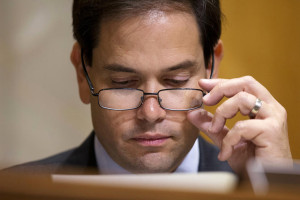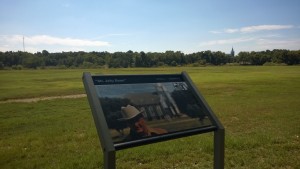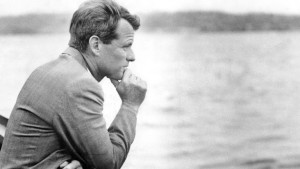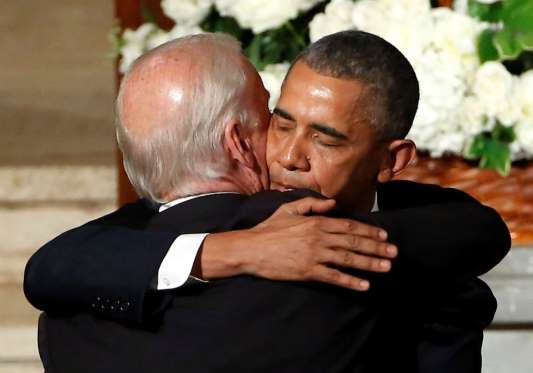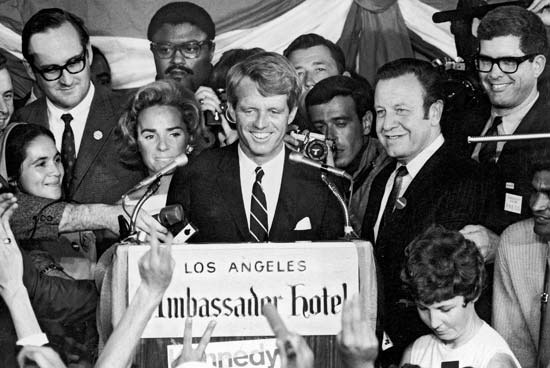
Forty-seven years ago today, I had gone to bed. It was late on a Tuesday night.
I had just watched the news about the California Democratic Party presidential primary. Sen. Robert Kennedy had just been declared the winner. I turned in and was happy about the outcome.
Right after midnight, my mother knocked on my door. “You need to come down and see this,” she said. “Something terrible has just happened.”
I dragged myself out of the sack and went downstairs and saw for myself. Someone had shot Bobby Kennedy.
The shock was palpable. No. This isn’t happening. Oh, but it did.
I was about two months away from being inducted into the Army, although I didn’t yet know it that evening. My own life was about to change dramatically.
On that night, the nation’s life changed as well.
RFK died the next day at the age of 42. Would he have been nominated by his party? Would he have been elected president? The debate has raged for 47 years ever since that terrible event in Los Angeles, but I believe the answer is “yes” to both questions.
Maybe it’s my heart overriding my head in believing RFK would have become president. Still, I can make an analytical argument that even though then-Vice President Hubert Humphrey was ahead in convention delegates at the time of the assassination, that RFK could have peeled enough of them away by selling his own candidacy as the only one capable of defeating the Republican nominee, Richard M. Nixon.
I had a fair amount of political interest back then, even though I was just a year out of high school. It was heightened beyond its already high level the week before the shooting.
The previous week the Oregon primary took place. My home state had delivered the Kennedy its first-ever political defeat when Democrats chose Sen. Eugene McCarthy over RFK.
I was working at my job at McDonald’s the night of the Oregon primary. A motorcade pulled into the lot next door in front of a fashionable Chinese restaurant. I shot a look at the figure climbing out of an open convertible. The profile that was back-lit by a lamp belonged to Robert Kennedy. I grabbed a piece of paper and a pen and ran across the lot and walked right up to the senator and his wife, Ethel; this was before Secret Service agents surrounded presidential candidates and, indeed, it was Kennedy’s death that prompted President Johnson to issue an executive order assigning such protection to future candidates.
I told Sen. Kennedy how much I wanted him to win the presidency and that I wanted to wish him well as his campaign proceeded.
RFK signed his name to the piece of paper and then he asked me one question: “Are you old enough to vote?” I said no. With that, he turned and walked away. He didn’t say another word.
I’ll be candid. I thought at the time it was a serious insult to a young man. Perhaps if I’d anticipated the question, I would have said “yes,” even though the voting age was still 21 and I was a couple of years younger than that. Hey, what would have done, asked for ID?
I didn’t have enough snap at that moment.
Now that I’m a whole lot older, I understand better that a politician in the middle of a fight — who needs every vote he can get at the last minute — doesn’t have time to waste on someone who couldn’t help him.
Well, it all ended the next week.
Mom was right. Something “terrible” did happen that night.
And I still miss Bobby Kennedy.
